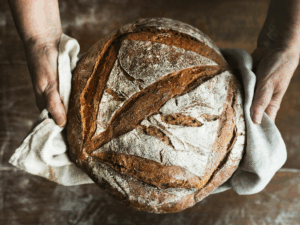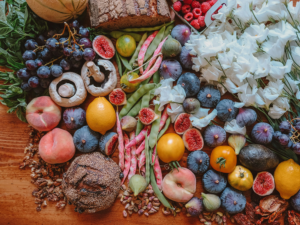
In recent years, the rise of vegan diets has increased the variety and availability of plant-based alternatives to dairy products. Consumers now have an array of options; from almond, oat and soy ‘milk’ to vegan ‘cheese’, ‘yogurt’ and ‘cream’.
However, UK food producers face significant challenges in naming these products due to stringent regulations prohibiting the use of dairy designations for plant-based foods. This blog considers the complexities of these regulations and their impact on producers and consumers.
Regulatory Landscape
The specific requirements for dairy designation rules are set out in Retained EU law Regulation (EU) 1308/2013 (Dairy Designation controls). These state that ‘milk’, ‘cheese’, ‘butter’, ‘yogurt’ and similar terms are legally reserved for products derived from animal milk. This regulation aims to prevent consumer confusion and ensure that product labeling is clear and accurate.
The landmark case of VSW v TofuTown.com (case C-422/16) in 2017 highlighted the stringent application of these rules. The European Court of Justice ruled that purely plant-based products cannot be marketed with names that dairy designations protect. This decision underscored the strict interpretation and enforcement of the regulation.
“Article 78(2) and Annex VII, Part III, to Regulation (EU) No 1308/2013 […] must be interpreted as precluding the term ‘milk’ and the designations reserved by that regulation exclusively for milk products from being used to designate a purely plant based product in marketing or advertising, even if those terms are expanded upon by clarifying or descriptive terms indicating the plant origin of the product at issue, unless that product is listed in Annex I to Commission Decision 2010/791/EU”
This ruling makes it clear that plant-based products cannot be marketed with designations such as ‘milk’, ‘cream’, ‘butter’, ‘cheese’ or ‘yoghurt’, which are reserved by EU law for animal products. The same is true if those designations are accompanied by clarifying or descriptive terms indicating the plant origin of the product. There is a closed list of exceptions for items not considered Dairy Designations. For example, terms like ‘cream’ can be used in specific non-dairy contexts, such as for ‘coconut cream’, provided there is no risk of consumer confusion.
The retained EU law applies in the UK and is enforceable through The Spreadable Fats (Marketing Standards) and the Milk and Milk Products (Protection of Designations) (England) Regulations 2008 No 1287 and equivalent regulations in Wales, Northern Ireland and Scotland; FIC Regulation 1169/2011 – article 17 (name of the food) & article 2(2)(n)-(p); articles 7, 36; Food Information Regulation 2014 No 1855.
In February 2022, the Food Standards and Information Focus Group (FSIFG) on behalf of Defra issued new guidance further restricting the use of dairy-related descriptors for plant-based products. According to this guidance, brands are banned from using terms such as ‘yoghurt-style’, ‘cheddar-type’, or even homophones and misspellings like ‘mylk’.
This regulatory environment presents challenges for both consumers and producers of plant-based foods. Currently, responsibility for enforcement of the law on dairy labelling and marketing standards lies with local authorities and the trading standards officers acting on their behalf.
Implications for Producers, Consumers and the Hospitality Industry
Clear and concise product names are crucial for effective marketing and brand recognition. The need to use less familiar or more cumbersome terms can make it harder for plant-based foods to stand out. Additionally, there is the risk that consumers might perceive these products as inferior or not genuine substitutes for dairy items due to their unfamiliar names. Producers must find creative ways to communicate the nature and benefits of their products without relying on dairy terms. This could involve developing new terminology, leveraging visual branding elements, and emphasising the unique qualities of plant-based dairy alternatives.
Related to this issue is the potential for consumer confusion. Many people associate certain terms with specific types of products. For instance, the word ‘milk’ conjures an image of a white liquid typically derived from cows. When plant-based products cannot use these familiar terms, consumers may struggle to identify suitable alternatives quickly. This can be particularly challenging for individuals new to plant-based diets who rely on these products to replace traditional dairy products in their meals.
The naming conventions of plant-based alternatives also have implications for people with food allergies. For individuals with lactose intolerance or dairy allergies, clear labeling is essential to avoid accidental consumption of allergens. Ensuring that plant-based products are dairy-free is crucial for the safety and well-being of these consumers. See our blog ‘Food Allergies and ‘Vegan’ Labelling’ for more information on the dangers of hidden allergens and cross-contamination.
The correct naming of plant-based alternatives to dairy foods is also important for hospitality and catering professionals when creating menus to ensure that diners know exactly what they are eating when dining out or ordering a takeaway.
Moving forward
The landscape of plant-based alternatives is continually evolving, and so too are the regulations governing their labeling. As consumer demand for these products grows, there may be increased pressure on regulatory bodies to revisit and potentially revise the existing guidelines to better balance the needs of traditional dairy consumers with those of plant-based and allergy-prone individuals.
Helping customers with dietary restrictions make safe choices
Along with the 14 regulated allergens, Menu Guide’s Advanced Plan provides custom icons for food allergens. Customers may also search Menu Guide’s allergen menus for any ingredients or food item that they need to avoid due to an allergy or food hypersensitivity.
Would you like to help your customers make safe food choices? Try Menu Guide free for a month and see the difference it makes.

 Our Food – FSA & FSS Annual Review
Our Food – FSA & FSS Annual Review Best practice for allergen information
Best practice for allergen information Allergen information for distance selling
Allergen information for distance selling Draft guidance for allergen information
Draft guidance for allergen information Beyond the 14 regulated food allergens
Beyond the 14 regulated food allergens